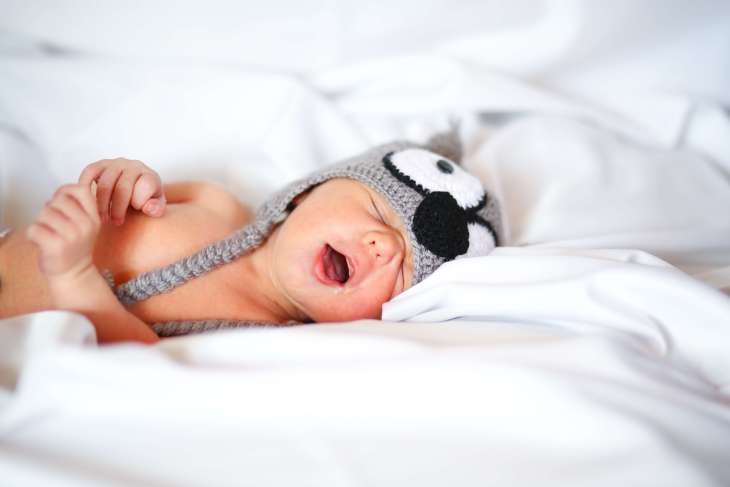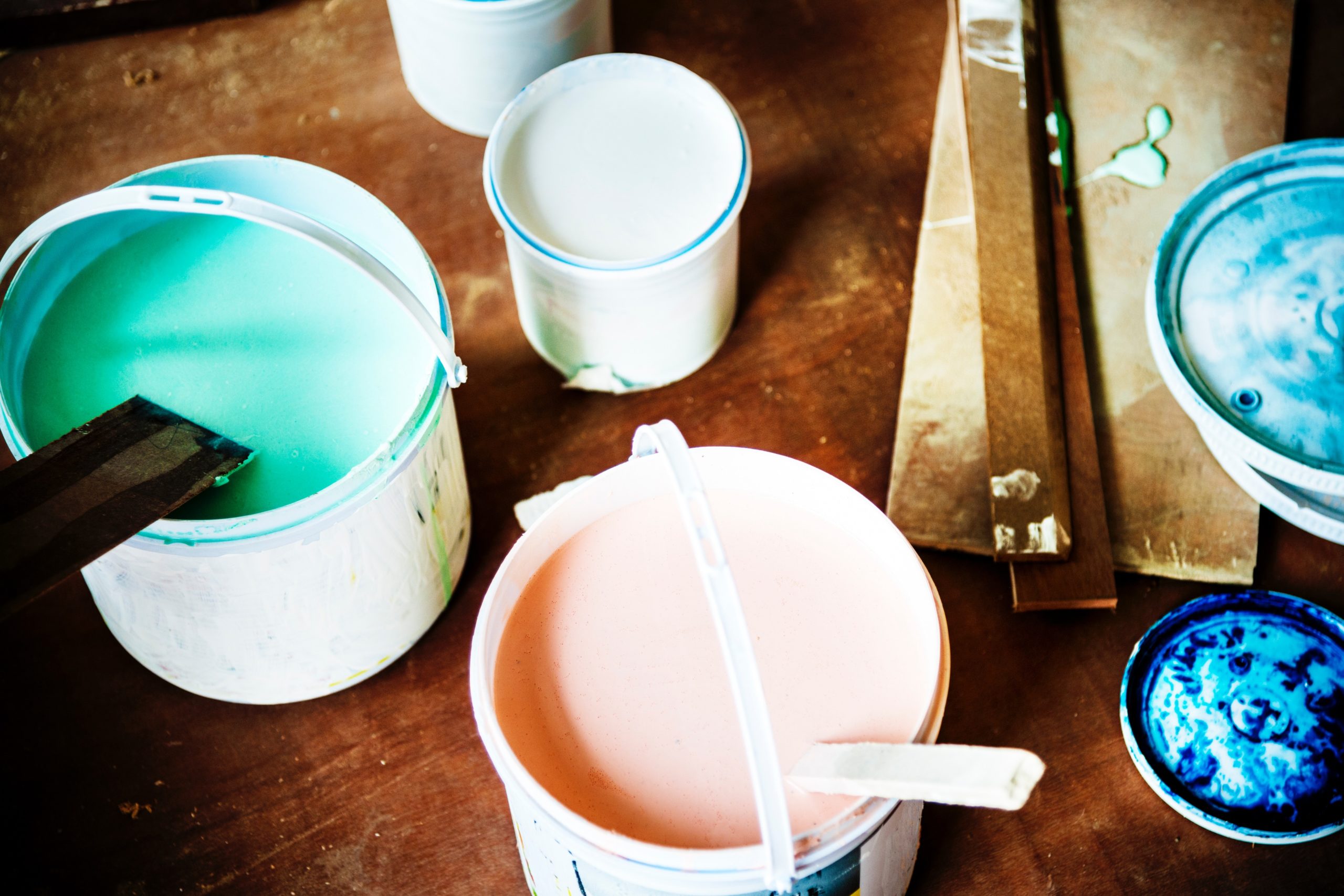It’s an overall fuzzy and overwhelming overflow of emotions that every new parent feels. Whether you’ve just had your first child or about to have your bundle of joy, every new parent or parent-to-be makes all the necessary adjustments of the addition of another family member.
Here are a few things we put together to help you check things off your list in the quickest way possible so you’ll still have time to spend on other equally important things like picking matching outfits for you and your baby.
10 Things to Know About Newborns
1. Baby may look funny
After spending 9 months in the womb, the baby may look a little swollen with his eyes often shut and a little gooey. His head might be a little smooshed from his travels through the birth canal and could also sport a bodysuit of fine hair called lanugo. But soon, he’ll look like that beautiful baby you’ve always been dreaming.
2. You’ll be working for a boss baby – until the next 6 weeks
Imagine having a boss who only complains and doesn’t recognize your efforts, that’ll be the picture for the first six weeks. To get through the emotional and physical stress, remember that your efforts aren’t thrown out of the window in those early days. “He feels comforted by his father or mother, he feels attachment, he likes to be held,” says Los Angeles-based pediatrician Christopher Tolcher, MD.
3. Don’t bathe your baby, give them sponge baths
Give them sponge baths until the umbilical cord falls off. Keep it dry, it will fall faster, and this usually takes two weeks. And if it does get wet, simply pat it dry. When it falls off, the stump may bleed a little, and that’s okay too, Alyson Bracken, of West Roxbury, Massachusetts, learned. “It scared me at first,” she says, but then she soon discovered that, as with a scab, mild bleeding was normal.
4. Don’t be afraid of handling the soft spot
The fontanel is an opening in the skull, which allows the baby to maneuver out of the birth canal. This is the soft spot, which often terrifies people, as April Hardwick, of New York City, said, “I was terrified of the soft spot,” But Tanya Remer Altmann, MD, Pediatric, an and author of Mommy Calls, says, “It’s okay to touch the soft spot and baby’s hair near it”. You may also feel a pulse on that spot because it’s directly over blood vessels covering the brain.
5. You’ll know if the baby’s getting enough food
If you’re nursing, it’s difficult to know how much milk she’s getting but the baby usually needs to eat every two to three hours.”The baby’s weight is the best indicator in the early days,” says Dr. Tolcher. Expect your pediatrician to check the weight within the next few days of discharge. Usually, newborn babies lose 5 to 8 percent of her birth weight within the first week but expect her to gain it back in a snap. One other tip for this is to do diaper-counting as a gauge: her schedule those five days is erratic, but after that, you’ll be expecting 5-6 wet diapers a day and at least one or two stools.
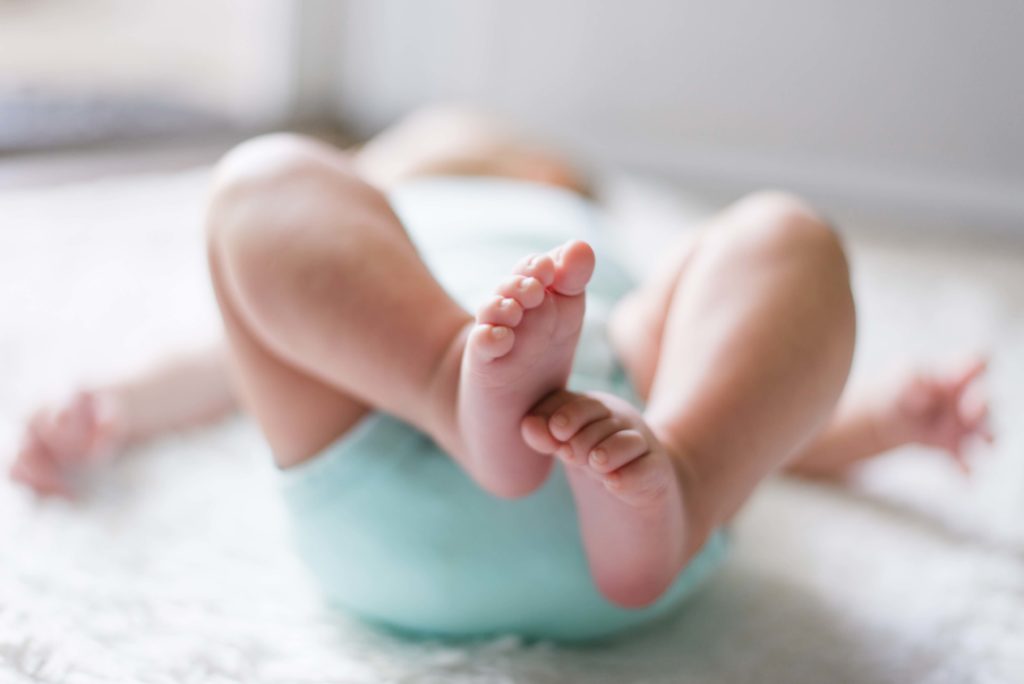
6. Learn how to change a diaper
There are a lot of interesting videos about changing baby diapers. Babies poop, a lot! Changing diapers is no easy task and if you’re still getting your hand into it, learn how to change one through everybody’s go-to, Google.
7. Dry skin is the new normal
The baby may soft and silky in the beginning, but that changes. “If you soaked yourself in liquid for nine months and then hit the air, you’d be dry too!” says Laura Jana, MD, pediatrician, and coauthor of Heading Home With Your Newborn. As advised, you don’t need to do anything about dry skin, it usually peels and flakes off. But if you’re so adamant to do so, go for a hypoallergenic baby lotion that’s fragrance-free.
Little pink bumps, diaper rashes, and even baby acne may also appear. “Acne tends to last for a few months,”. Dr. Jana Says. “So get those cute newborn pics before one month!”
8. You can bring your toddler outside, you don’t need to be stuck at home
You can bring your baby outside, you don’t have to hole up at home all day, just avoid sick people, keep the baby out of the sun, crowded enclosed spaces like malls during holidays, and it is advised to avoid toddler birthday parties! As. Dr. Tolcher puts it, “Lead a normal life, but use common sense when you go out in public”.
He also adds, “Teach older siblings to touch baby’s feet instead of her hands and face, which will help prevent the spread of infection,” he adds. And make your older child the hygiene police, says Dr. Jana. He’ll love telling guests, “Don’t touch the baby without washing your hands.”
9. Babies communicate by crying — a lot!
Wailing is the only means your baby can communicate. Their deafening wails let you know if they’re hungry, cold, have a dirty diaper, or want to be held. This can be very frustrating in the beginning, but you’ll eventually get a better handle on what she needs. Laurie May, of Boardman, Ohio, and her husband immediately learned to know their daughter’s hunger signal, when they were brand-new parents, they planned and made an alarm to go off every two hours to wake Carter for a feeding. “We did not need the alarm!” she says. “We love to laugh at that one now.”
10. Newborn babies sleep a lot but for short durations.
The first three months will be a free-for-all. Baby needs to eat every two to three hours, so expect not to get much sleep either. “It does get better,” assures Dr. Altmann. “Most infants can sleep for six to eight hours by 3 months of age.” In the meantime, try to get the baby on a day and night schedule: during the day, make you don’t let him sleep more than three hours without waking him to feed; at night let him sleep as long as he wants, once he’s gotten back the weight lost at birth.

Parenting 101: Mistakes Parents Make During Their First Year
New-parent mistake No. 1: Panicking over everything, big and small
Parents can waste the entire first year of their baby’s life by worrying about the small stuff, as Hoffman puts it.
Parents worry about a lot of questions like, Is he having too many or too few bowel movements? Is she spitting too much? Is she eating enough or too little? Is he crying too much or too little?
Does that sound familiar to you?
“This worry gets in the way of being spontaneous and enjoying your infant’s first year of life,” Hoffman says. “Babies are far more resilient than we give them credit for.”
“Many new parents have overblown physical reactions to spitting up, vomiting, and other things a baby does,” says Leon Hoffman, MD, director of the Pacella Parent Child Center in New York. ”And the baby picks up on that anxiety.”
New-parent mistake No. 2: Avoiding the infant to cry it all out
“We, as parents, think our job is to make sure the baby is not crying,” says pediatric nurse Jennifer Walker, RN. “That’s because we associate crying with the fact that we are doing something wrong and we need to fix it,” she says. “Babies are designed to cry. They can be perfectly diapered and fed and still cry like you are pulling an arm off.” That’s just the way babies communicate but It doesn’t mean you can’t console or cuddle them.
Usually, crying is just really part of being a baby. But if the baby is inconsolable and doesn’t stop crying after an hour and has a fever, rash, vomiting, a swollen belly, or anything else unusual, best to call your pediatrician as soon as possible. You know your baby best. If you something is odd, always check with your doctor.
Read more: Online Medical Advice – Is it Safe?
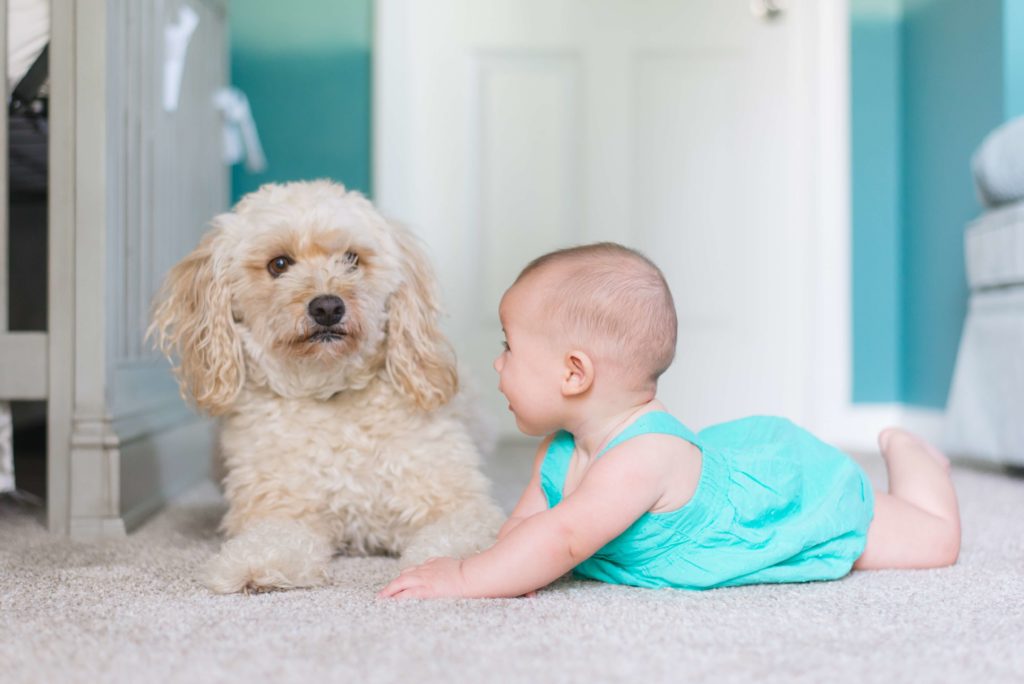
New-parent mistake No. 3: Waking your baby up to breastfeed.
“Breastfed babies can — and should — sleep through the night,” Walker says. ”But there’s a common misconception that breast milk is not thick enough to get an infant through the night. But it is possible and beneficial for breastfed babies — and their moms — to sleep through the night.”
New-parent mistake No. 4: Confusion on vomit and spit up.
Walker says, “The difference [between spit-up and vomit] is frequency, not forcefulness. Spit-up can absolutely fly across the room.” Vomiting, on the other hand, is all about frequency. “If your baby is vomiting with a gastrointestinal virus,” she says, “it will come every 30 or 45 minutes regardless of feeding.” Spit-up, however, is usually related to feeding.
New-parent mistake No. 5: Not worrying over fever in a newborn.
“Any fever over 38 celsius rectally in the first 3 months of a baby’s life is an emergency,” Walker says. With the exception of the fever that develops after the infant’s first set of immunizations within 24 hours. “Some parents may just say ‘he feels warm’ and give the baby Tylenol,” Walker says.
“But that’s a parenting mistake in this age group. An infant’s immune system is not set up to handle an infection on its own.”
If your infant feels warm, check the temperature rectally. If the temperature is above 38 celsius, call your pediatrician immediately.

New-parent mistake No. 6: Not properly installing the car seat.
Trying to install a car seat can seem like rocket science for any new parent. But make sure to do this correctly. As Walker puts it “Once you have chosen the right seat, go to your local fire station or Babies-R-Us or another chain store to make sure you have installed it correctly.” Or find people who’ve done this help you put it in. “Your infant’s life,” she says, “may depend on it.”
New-parent mistake No. 7: Ignoring oral care.
“Many new parents don’t think about their newborn’s teeth or oral health until it is too late,” says Saul Pressner, a New York City-based dentist. Babies are never too young to start having good oral health habits. Here, Pressner offers valuable tips for new parents to prioritize preventive dentistry for their infants and promote a lifetime of healthy teeth and gums:
- Once teeth have erupted don’t give your infant milk in bed “This will increase the risk of developing cavities,” Pressner says, adding that the cavities are also known as baby bottle decay.
- “Use a wet gauze to wipe down your baby’s gums”, he says. When the infant turns 1 start using a toothbrush.
- It is vital that your infant gets enough fluoride. Fluoride helps avoid cavities and is found naturally in water. Some towns have fluoridated water through the taps. “If yours doesn’t,” Pressner says, “ask your dentist about supplements.”
New-parent mistake No. 8: Overlooking your marriage.
“Staying connected within the marriage when you first have a child is really important and can be overlooked,” says John C. Friel, Ph.D., a licensed psychologist. “Any weakness in that relationship will get magnified by having a child. And while you have to focus a lot on the new baby, you must somehow maintain a sense of being a couple.”Friel warns couples to avoid this common parenting mistake by “making sure that you are not zoning out when you are not with the baby.”
New-parent mistake No. 9: Fighting too much (or too little) in front of your baby.
“Even a 3-month old will pick up vibes,” Friel says. In terms of fighting, he suggests you ask yourself, “Is it scary?” or “Is it frequent?” “Look at the intensity and frequency of your fights,” he says. “Snapping every now and then is a normal part of living with another person. And when people start to suppress too much, it’s just as bad as going to the other extreme.”
New-parent mistake No. 10: Trusting unreliable sources for parenting advice.
“Many new parents go to the wrong places for parenting advice. This is a classic parenting mistake,” Walker says. She advises that you be careful about where you get your information. Walker says, “WebMD.com, the Federal Centers for Disease Control and Prevention (CDC), and the American Academy of Pediatrics are reputable and useful when making decisions about general medical care and immunization”
While focusing on our bundle of joy is one of the most important, if not the most vital aspect of being a new parent; it’s of utmost importance also to make your home a sanctuary – clean, comfortable and relaxing.
Our homes are our headquarters, where we spent most of our time. Our babies, most especially, will be spending almost all their time indoors as they develop their immune system and bodies to be protected from the outside elements.
Read more: Parent’s Guide to Understanding Home Air Quality
We went ahead and compiled a few checklists for you to see if you got your house covered and clean.
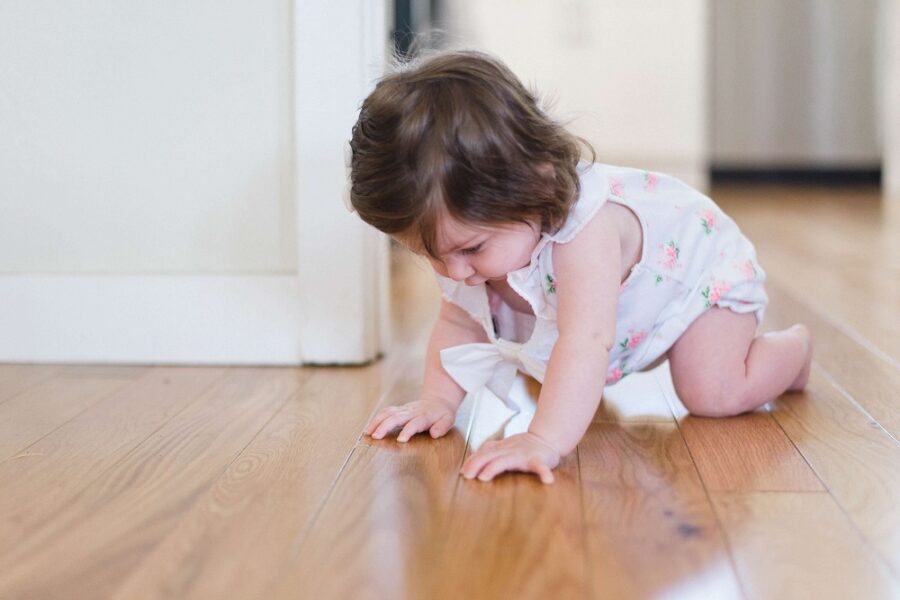
The Stuff In Your Home That Makes You Sick
Homes are our personal sanctuaries and havens. They are a place for us to get away from the nuances of the outside world. What many do not realize, however, is that houses, like anything, are not exempted from pollution.
Known as the toxic home syndrome, indoor air pollution can pose a greater risk for developing health issues. If you’re wondering how your house is making you sick, read on to find out what hazards are lurking in your home that contributes to poor indoor air quality and learn how you can keep your abode and your family healthy.
Heating and Cooling Systems
One of the biggest culprits of indoor pollution is your HVAC – particularly if it’s not regularly well-taken care of because cooling often leaves water traces, moisture can build up in the ducts and coils.
As a result, these hidden spots become ideal breeding grounds for mildew and mold. Since air conditioning does not really bring fresh air but only circulates old air, these microbial growths can go airborne and lead to a number of respiratory issues, such as coughing, asthma, breathing problems, allergies, and headaches.
On top of mold threats, air-conditioning systems can make your skin dry. What’s the easiest solution for this? Prevent mold and bacteria from building up, have your air ducts cleaned by a professional every couple of years.
Also, make it a habit to let fresh air seep into your home once in a while to prevent air contamination from airborne viruses, dust or mold that your HVAC is circulating around. If the air-conditioned environment is causing your skin to lose moisture, keep a moisturizer on hand.
Leaks
Whether they are water leaks from broken pipes or the roof or gas leaks from the furnace or chimney, undiscovered leaks may be making you sick.
Gas leaks can cause carbon monoxide poisoning, which could lead to flu-like symptoms and an impaired vision. Water leaks, on the other hand, can lead to mold proliferation if left untreated, which could be hazardous for people who have asthma or breathing problems.
The solution? Conduct a regular inspection. Check closets, attics, basements, pipes, and the roof to make sure that everything’s dry. At the same time, ensure that all your gasoline-powered equipment and appliances have vents or exhaust fans. If you find any leak, have it repaired by a professional immediately.

Refrigerators
Many people forget that the coils and trays of a fridge need to be washed just as often as the inside of the appliance is cleaned. Refrigerators are usually equipped with an electric coil that automatically thaws the frost in the freezer.
When the melted ice drips in the trays, the warm air from the refrigerator’s compressor help evaporate it. So if it’s not cleaned on a regular basis, mildew could thrive in it and the compressor could blow dust, mold spores, and other allergens into the air.
The simplest solution to this is to clean the refrigerator coils and pan periodically. Make sure to check the manufacturer’s manual for instructions. Moreover, keep new and fresh stocks of food in your fridge. Since mold enjoys humid, dark environments, it can grow on your fresh produce or dairy products and cause sickness if not properly disposed of.
Bath Mats
Bath mats are another perfect breeding ground for numerous harmful organisms, including mold, dust mites, bacteria, and yeast. When you step out of the shower or tub and dry yourself on top of the mat, you leave a puddle of water on the floor, which then leads to the beginning of a mold or mildew buildup.
Keep the bathroom window or vent open after taking a shower to keep the bathroom well ventilated and moist-free. Also, have your bathroom regularly cleaned and checked. Aside from bath mats, mold can unknowingly grow between cracked tiles and faulty caulks.
Cleaning Products
Commercial cleaning products contribute to chemicals floating in the air at home. Cleaning products with toxic ingredients, like phthalates, butoxyethanol, ammonia, and triclosan can set off breathing problems, headaches, eye irritation, and allergic reactions when they get in contact with the skin or are breathed in.
Read more: 5 Household Products You Didn’t Know are Toxic
If you can’t keep away from chemical-laden products, wear gloves and masks and keep the area well ventilated to avoid touching or sniffing the harmful substance. Switch to vinegar, baking soda, lemon, essential oils, soap nuts and other natural cleaners when doing household chores.
Home Furniture
Dust mites accumulate on curtains, bedding, the couch, your mattress, pillows, and even on your child’s most beloved stuffed toy. These microscopic bugs are allergens that thrive on humidity and the warmth our bodies provide. They also feed on dead skin flakes from pets and people – hence, why mattresses and furniture with soft cushioning are their favorite hangout places.
Although they are present in every home, not everyone has symptoms from dust mites, but those who do have, experience allergic reactions that are debilitating and uncomfortable. Dust mites cannot be entirely eliminated, however, there are ways you can reduce their numbers.
Wash your towels, bedding, and sheets in how water at least every week and allow them to dry under the sun along with your mattress. Dust mites, much like vampires, loathes sunlight. Regular dusting and vacuum cleaning also help get rid of these pesky bugs.
Read more: Cleaning Tips for Expecting Parents
Make sure you are protected while you sleep, encase your pillows and mattress in allergen-impermeable covers. Also, if you have carpeted floors, consider replacing them with wood, tile or linoleum.
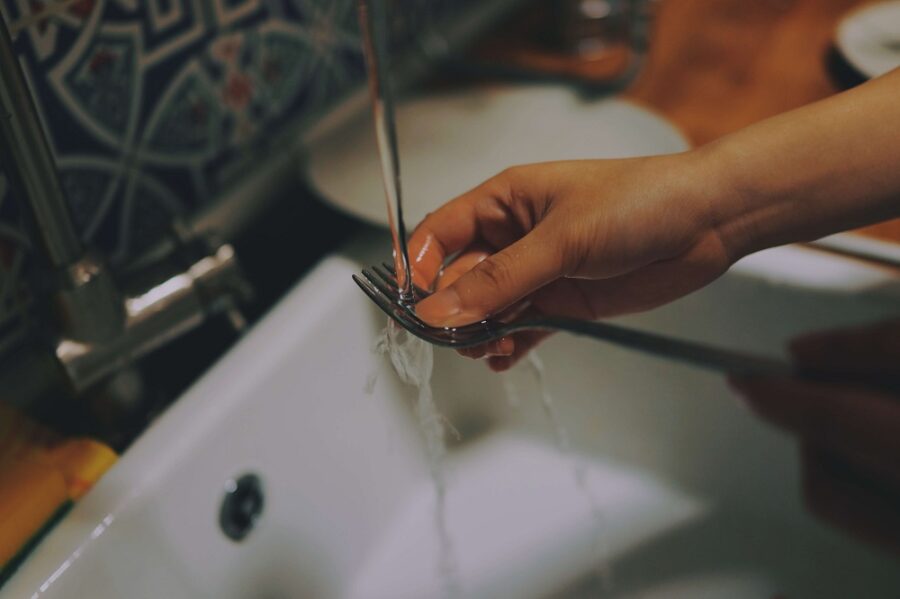
Bacteria and Viruses In Your Home That You Should Know About
Bacteria and viruses are all around us. They’re the causes of Respiratory tract infections (RTIs) such as colds, sinusitis, and sore throats. Where do these bacteria linger? The answer may surprise you, as these items are your “precious.”
Mobile Phones
Many studies have proved that your mobile phone is a nasty thing. It carries a host of bacteria, including Pseudomonas, staph, and salmonella. These bacteria may cause eye and skin infections. Salmonella, of course, is the culprit of most food poisoning. Since most electronic devices have plenty of creases, they become the perfect breeding ground for bacteria.
When you have toddlers, make sure that your mobile gadgets are out of reach. To protect yourself, it’s crucial to be conscious where you put your phones and to remind yourself to clean it regularly.
Toothbrushes
Yes, it’s ironic that the thing you use to clean your mouth is also a thing that holds the most bacteria. Besides the bacteria it attracts from your mouth, it is also damp, which makes it the ultimate chill-out spot for bacteria.
Remote Controls
According to a Dr. Charles Gerba from the University of Arizona, the remote control in a hotel room is dirtier than the toilet and even hotel bedspreads. It contains traces of semen, urine, and even feces.

Computer Keyboard
If your work involves using the computer for long periods of time, then your fingers have a very close relationship with your keyboard. This relationship, unfortunately, means that you are exposed to a host of bacteria and viruses.
In a 2008 study conducted by a U.K. consumer organization, the researchers found that keyboard is considered to be up to “five times dirtier than the average toilet seat.”
As you read this article on your computer, you probably just gave the keyboard a look of disgust. We all have ourselves to blame though. The bacteria are brought about by our own habits: eating in front of our desks and not washing hands after using the restroom. Plus, our fingers also naturally produce skin oils, which can cause further germ festering.
Dish Towel
This last one can easily go unnoticed compared to other things in the kitchen, such as the chopping board or the sink. However, the dish towel may be the nastiest item lurking in your kitchen. According to a food preparation study, “Towels were determined to be the most contaminated of all the contact surfaces tested.” This happens mainly because of poor food handling practices, which cause the bacteria on the towels to grow very fast overnight.
Just like in love, you don’t get rid of someone just because they hurt you. We can’t live without these items, so the only thing to do is to pay a little bit more attention to how we use them.


